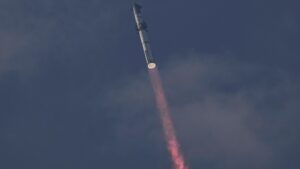Israel Warns Hezbollah and Lebanon Over Border Clashes
Amid escalating tensions along the Israeli-Lebanese border, Israel has issued a stark warning to Hezbollah and the Lebanese government. The conflict, which has seen a significant increase in hostilities since early October, is raising concerns about a wider regional escalation.
This week, the Israeli Defense Forces (IDF) have been on high alert following a series of cross-border attacks by Hezbollah. Benny Gantz, an Israeli minister, cautioned that Israel would take decisive action to remove Hezbollah from the border if their assaults persist. This statement underscores the growing impatience and concern within the Israeli government regarding the security situation in the north.
Chief of the General Staff of the IDF, Lt Gen Herzi Halevi, emphasized the military’s commitment to ensuring the safety of northern residents, stating that achieving this would take time. He made these remarks after a comprehensive situational assessment, reflecting the seriousness with which Israel is treating the threat.
The recent spike in violence can be traced back to Hamas’s attacks on Israel on October 7. Since then, there has been a noticeable increase in the scale and frequency of Hezbollah’s cross-border operations. Just this Wednesday, Hezbollah executed its most aggressive series of attacks since October 8, as per security sources.
The Lebanese ambassador in the UK, Rami Mortada, responded to the situation by highlighting Lebanon’s stance against escalation. He stressed the need for all parties to de-escalate, pointing out that Lebanon has been on the receiving end of attacks. His comments come amidst a backdrop of heated rhetoric and military action, including a statement by Israeli Prime Minister Benjamin Netanyahu threatening significant retaliation if Hezbollah initiated a full-scale conflict.
Hezbollah, identified as a terrorist organization by several Western states, Israel, Gulf Arab countries, and the Arab League, is seen as a significant threat due to its extensive military capabilities and support from Iran. The group’s actions along the border have historically led to severe consequences, as seen in the 2006 war triggered by a cross-border raid by Hezbollah, which led to a substantial Israeli military response in southern Lebanon.
This week’s events have included increased rocket fire and the use of weaponized drones by Hezbollah, with Israeli warplanes responding promptly. On Thursday, Israeli forces reported intercepting a drone from Lebanon. Additionally, an Israeli air strike in Bint Jbeil, a town close to the Israeli border, reportedly resulted in the deaths of a Hezbollah fighter and two relatives, one of whom was an Australian citizen.
The human toll of this conflict has been heavy on both sides. Since October, over 100 people in Lebanon, mostly Hezbollah fighters, have been killed, including civilians and journalists. On the Israeli side, casualties include civilians and soldiers, with thousands of residents in the border area evacuated.
The United Nations Interim Force in Lebanon (Unifil) has been a constant presence in the region since 1978, working to maintain peace. Recently, Unifil called for an investigation by Lebanese authorities following an attack on one of its patrols in the country’s south.
The situation remains tense and fluid, with Hezbollah’s recent actions and Israel’s firm response indicating a critical juncture in the longstanding conflict. While diplomatic efforts are still a possibility, the window for a peaceful resolution appears to be narrowing, as indicated by the heightened military preparedness and the escalating rhetoric on both sides. As the international community watches closely, the hope for de-escalation and a return to stability in the region hangs in the balance.







